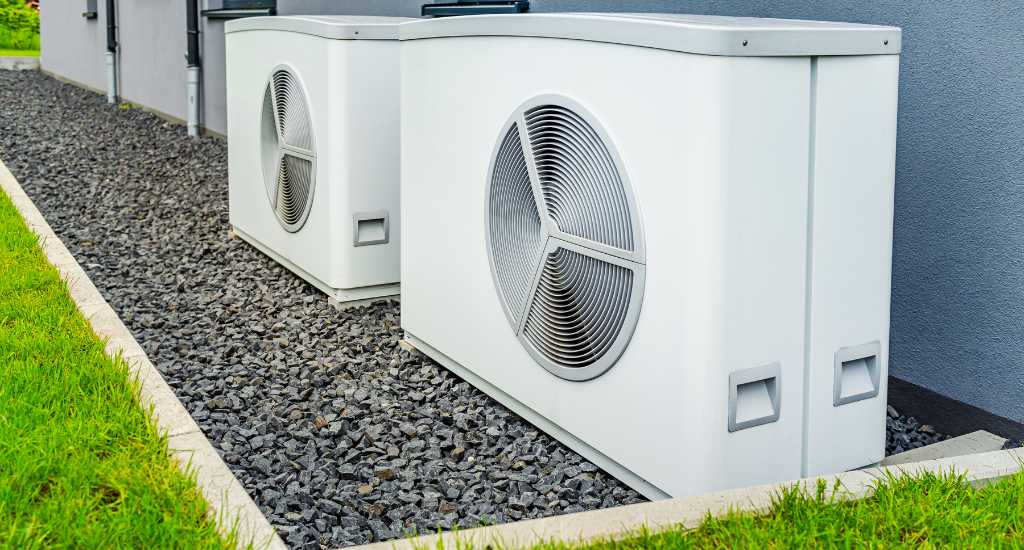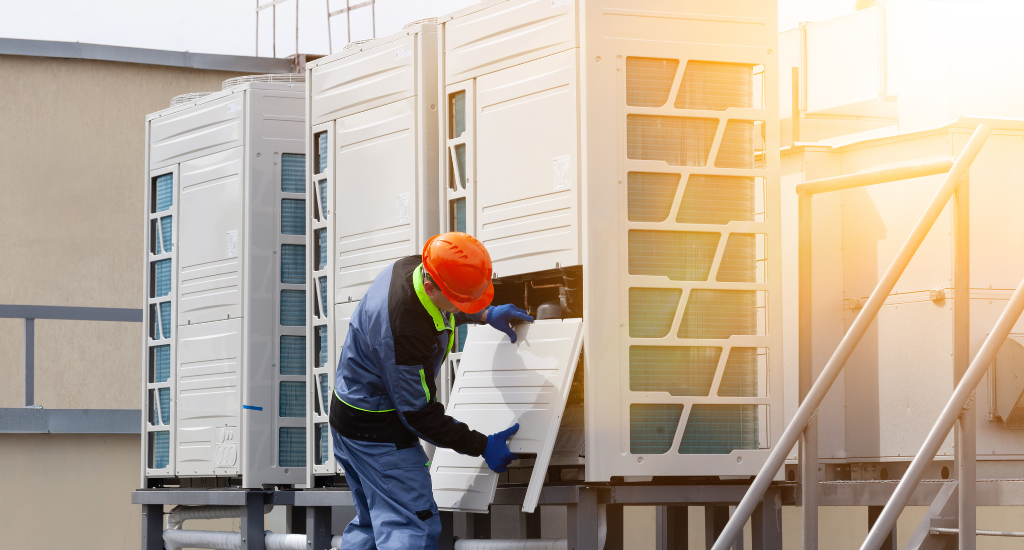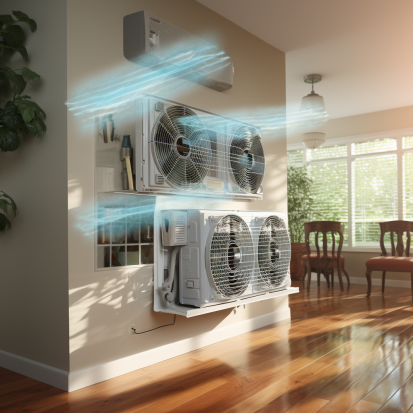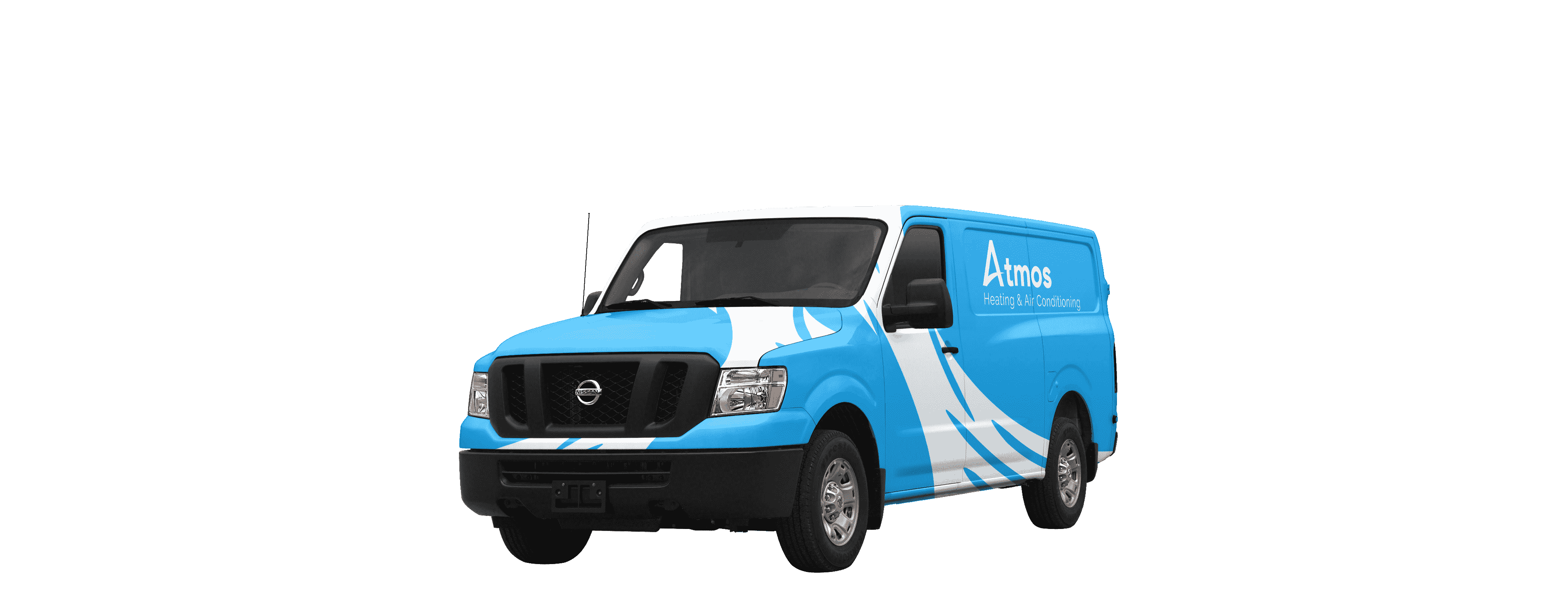As the temperature rises, the last thing you want is for your air conditioning unit to fail you. But what do you do when your AC is not cooling, despite being on full blast? This blog post will help you troubleshoot common causes of AC not cooling and provide easy fixes for a more comfortable home.
Understanding How Your AC Works
Before diving into the causes of AC not cooling, it’s important to understand the basic functioning of an air conditioning system. At its core, an AC unit works by transferring heat from the inside of your home to the outside. This process involves several key components, including the compressor, condenser, evaporator, and refrigerant.
The compressor compresses the refrigerant, causing it to become a hot gas. This hot gas then flows to the condenser, where it releases heat to the outside air. The refrigerant then turns back into a liquid and flows to the evaporator, where it absorbs heat from the inside air. This cooled air is then circulated throughout your home.
Proper cooling is essential for both efficiency and comfort. If any of the key components are not functioning properly, it can result in AC not cooling.

Common Causes of AC Not Cooling
There are several common causes of AC not cooling, including:
Dirty or Clogged Air Filters
One of the most common causes of AC not cooling is a dirty or clogged air filter. The air filter is responsible for removing dust, dirt, and other particles from the air before it enters the AC unit. When the filter becomes dirty or clogged, it can restrict airflow and prevent the AC from cooling effectively.
Refrigerant Leaks or Low Refrigerant Levels
Another common cause of AC not cooling is a refrigerant leak or low refrigerant levels. Refrigerant is the substance that absorbs heat from the inside air and releases it to the outside air. If there is a leak in the refrigerant line or if the refrigerant levels are low, the AC will not be able to cool effectively.
Faulty Thermostat
A faulty thermostat can also cause AC not cooling. The thermostat is responsible for regulating the temperature in your home by sending signals to the AC unit to turn on or off. If the thermostat is not functioning properly, it may not be sending the correct signals, resulting in AC not cooling.
Blocked or Dirty Condenser Coils
The condenser coils are responsible for releasing heat to the outside air. If the coils become blocked or dirty, they can’t release heat effectively, resulting in AC not cooling.
Issues with the Compressor or Fan
The compressor and fan are essential components of the AC unit. If either of these components fails, it can result in AC not cooling.
Incorrectly Sized AC Unit
An AC unit that is too small for the space will not be able to cool effectively. Similarly, an AC unit that is too large will cycle on and off too frequently, resulting in inefficient cooling.
How to Troubleshoot AC Not Cooling
If you’re experiencing AC not cooling, there are several steps you can take to diagnose the issue:
Checking Air Filters
Start by checking the air filter. If it’s dirty or clogged, replace it with a new one.
Inspecting for Refrigerant Leaks
Next, inspect the refrigerant line for leaks. If you notice any signs of a leak, such as hissing or bubbling sounds, or if the refrigerant levels are low, you may have a refrigerant leak.
Testing the Thermostat
Test the thermostat by setting it to a lower temperature and waiting to see if the AC turns on. If it doesn’t, you may have a faulty thermostat.
Cleaning Condenser Coils
Clean the condenser coils by removing any debris and hosing them down with water.
Checking the Compressor and Fan
Check the compressor and fan for any signs of damage or wear.
Sizing the AC Unit
If you suspect that the AC unit is incorrectly sized, consult with a professional HVAC technician.
DIY Fixes for AC Not Cooling
There are several DIY fixes for AC not cooling that you can try before calling a professional:
- Clean or replace the air filters as needed.
- Clear any debris around the outdoor unit, such as leaves or branches.
- Seal any duct leaks with duct tape or mastic sealant.
- Adjust the thermostat to a lower temperature and ensure that it’s set to “cool.”
- If you’re qualified, you can recharge the refrigerant yourself. However, it’s important to note that refrigerant can be dangerous and should only be handled by a professional.
When to Call a Professional

If you’re unable to diagnose or fix the issue yourself, it’s time to call a professional HVAC technician. Here are some signs that indicate the need for professional assistance:
Refrigerant Leaks
If you suspect a refrigerant leak, it’s important to call a professional. Refrigerant is dangerous and should only be handled by a trained professional.
Compressor or Fan Issues
If you suspect that the compressor or fan is the issue, it’s best to call a professional. These components are complex and require specialized knowledge and tools to repair.
Complex Diagnosis
If you’re unable to diagnose the issue yourself, it’s time to call a professional. HVAC technicians have the knowledge and tools to diagnose and repair even the most complex issues.
Preventing Future Issues
To prevent future issues with AC not cooling, it’s important to maintain your AC system regularly. Here are some tips for maintaining your AC system:
Regular Maintenance
Schedule regular air conditioning maintenance with a professional HVAC technician. They can inspect the system, clean the components, and identify any potential issues before they become major problems.
Professional Inspections
In addition to regular maintenance, it’s important to have professional inspections done periodically. These inspections can identify any potential issues and ensure that the system is functioning properly.
Setting Up a Maintenance Schedule
Set up a maintenance schedule to ensure that your AC system is regularly inspected and maintained. This can help prevent issues with AC not cooling and extend the lifespan of the system.
Common Questions About AC Not Cooling
Why is my AC not cooling, but the fan is running?
If your AC is not cooling, but the fan is running, the issue may be with the compressor or refrigerant. The compressor is responsible for compressing the refrigerant, which absorbs heat from the inside air. If the compressor is not functioning properly or if the refrigerant levels are low, the AC will not be able to cool effectively.
How do I recharge the refrigerant in my AC unit?
If you’re qualified, you can recharge the refrigerant yourself. However, it’s important to note that refrigerant can be dangerous and should only be handled by a professional. To recharge the refrigerant, you’ll need to locate the low-pressure port, attach a refrigerant hose, and add refrigerant until the pressure reaches the recommended level.
How often should I clean or replace the air filter in my AC unit?
It’s recommended to clean or replace the air filter in your AC unit every 1-3 months, depending on the usage and the environment. If you have pets or if you live in a dusty area, you may need to clean or replace the air filter more frequently.
Can I use a regular fan to cool my home if my AC is not cooling?
While a fan can provide some relief from the heat, it won’t cool your home as effectively as an air conditioning unit. Fans work by circulating air, which can help evaporate sweat and create a cooling effect on the skin. However, they don’t actually lower the temperature of the air.
What should I do if my AC is not cooling and I can’t diagnose the issue?
If you’re unable to diagnose the issue yourself, it’s time to call a professional HVAC technician. They have the knowledge and tools to diagnose and repair even the most complex issues.
Enjoy a Cool and Comfortable Home By Preventing and Fixing AC Not Cooling

AC not cooling can be a major inconvenience during the hot summer months. However, by understanding the common causes of AC not cooling and taking steps to diagnose and fix the issue, you can ensure a comfortable and cool home. Regular maintenance and professional inspections can also help prevent future issues and extend the lifespan of your AC system. Don’t let AC not cooling ruin your summer – take action today to ensure a cool and comfortable home.
In summary, there are several common causes of AC not cooling, including dirty or clogged air filters, refrigerant leaks or low refrigerant levels, faulty thermostats, blocked or dirty condenser coils, issues with the compressor or fan, and incorrectly sized AC units. To diagnose the issue, you can check the air filters, inspect for refrigerant leaks, test the thermostat, clean the condenser coils, check the compressor and fan, and size the AC unit. If you’re unable to diagnose or fix the issue yourself, it’s time to call a professional HVAC technician. Regular maintenance and professional inspections can also help prevent future issues and extend the lifespan of your AC system. Don’t let AC not cooling ruin your summer – take action today to ensure a cool and comfortable home.




